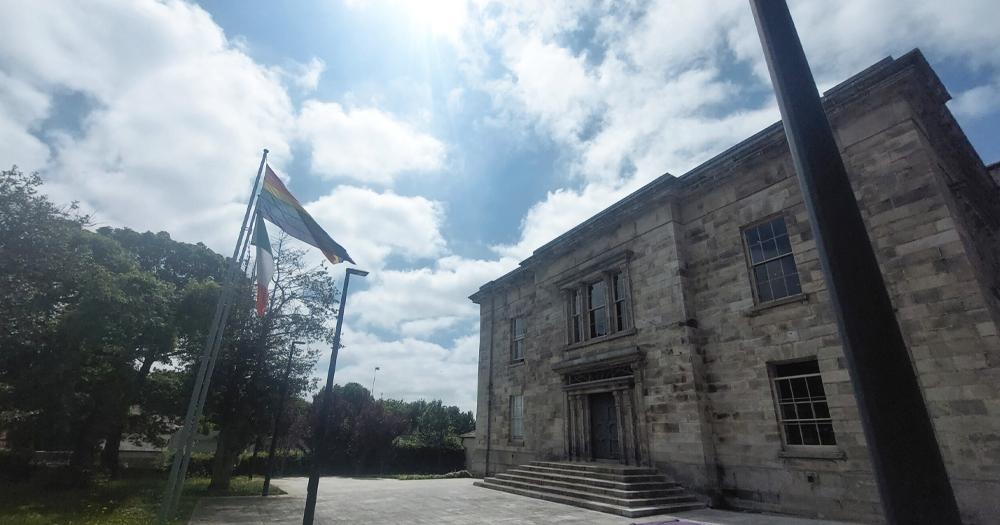The “Queer History Tour” offered by the Kilmainham Gaol Museum, in Dublin, faced hostility online after a tweet to promote the event was published. Dozens of Twitter users responded to the post with homophobic and transphobic comments, prompting organisers to shut down replies.
According to activists, this episode reflects the concerning growth of anti-LGBTQ+ sentiment that we are witnessing in Ireland, as in many other parts of the world. Recently ILGA-Europe published their annual report, which found that 2022 was the most violent year for LGBTQ+ people in Europe in a decade.
The organisers at the Kilmainham Gaol Museum said that the event, which has been running since 2018, has never faced a backlash like this. Several of the comments called the tour “propaganda” and insinuated that it was “offensive to Irish people”.
Happening on June 17 as part of Pride month, the now sold-out event is advertised as “a queer history tour of Kilmainham Gaol focusing on the lives of lesbian, gay, bisexual and transgender prisoners, including many who played a crucial role in the struggle for Irish Independence” and takes a look at queer Irish life in the 19th and early 20th century.
During the history tour, visitors will be told about a significant LGBTQ+ scandal that happened in the Dublin of 1884, where several senior figures from the British administration, as well as men from the tenements and slums of the city, were targeted and prosecuted for homosexuality.
We still have a few places available for our Pride Month Queer History tours of the Gaol on Saturday, 17 June at 1pm and 4pm. Booking is via Eventbrite. https://t.co/pnndX1V2XF #DublinPride #LGBT #PrideMonth #Pride2023 #PrideMonth2023 pic.twitter.com/vC52CzoQsa
— KilmainhamGaolMuseum (@KilmainhamOPW) June 12, 2023
The tour also takes a look at the stories of people that were involved in the revolutionary movement and who were presumed to be queer. The most famous example were Madeleine ffrench-Mullen and her partner Kathleen Lynn, who also get their own spot on the tour.
Brian Crowley, Collections Curator with the Office of Public Works who put together the tour, said: “There was a sentiment that somehow, homosexuality is incompatible with Irishness. So I think for the Irish LGBTQ+ community, it feels very important to be recognised as a part of the story of Ireland. People from the community have played key roles in the events that led to the formation of the state. We are a part of the story.”
Commenting on the recent backlash that the tour received, Crowley said: “We limited responses because it felt like all we were getting was very hateful, unpleasant comments. It didn’t feel like any good was going to come out of that.
“There’s this new wave of homophobia and transphobia out there. This year when we put up the pride flag, we were a bit more aware of it. I’m not surprised that this is the year that this happened. So it is quite worrying.”
“The purpose of tours like this is to say gay people existed before even if they weren’t visible. When you start to look back, you can see that there is history there but sometimes it’s not that easy to unearth or reclaim that history or bring it to light,” he concluded.
© 2023 GCN (Gay Community News). All rights reserved.
Support GCN
GCN is a free, vital resource for Ireland’s LGBTQ+ community since 1988.
GCN is a trading name of National LGBT Federation CLG, a registered charity - Charity Number: 20034580.
GCN relies on the generous support of the community and allies to sustain the crucial work that we do. Producing GCN is costly, and, in an industry which has been hugely impacted by rising costs, we need your support to help sustain and grow this vital resource.
Supporting GCN for as little as €1.99 per month will help us continue our work as Ireland’s free, independent LGBTQ+ media.
